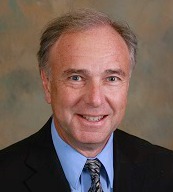Maike Sander, MD
Dr. Sander is the director of the Pediatric Diabetes Research Center. She is a professor in the UC San Diego's Departments of Pediatrics and Cellular & Molecular Medicine. Dr. Sander is an expert in pancreatic stem cell biology with twenty-five years of experience in medicine and diabetes research. After graduating with an M.D. from the University of Heidelberg Medical School in Germany, she conducted research at UC San Francisco. Prior to accepting her current position as Professor of Pediatrics and Cellular & Molecular Medicine at UC San Diego, Dr. Sander held faculty positions at Hamburg Medical School, Germany and the University of California, Irvine. In 2012, she was appointed Director of UC San Diego Pediatric Diabetes Research Center.
Her honors include the Grodsky Award from the Juvenile Diabetes Research Foundation, the Humboldt Research Award, and election to the American Society for Clinical Investigation, Association of American Physicians and German National Academy of Sciences.
|
Michael Gottschalk, MD, PhD
 Michael Gottschalk’s medical career began at the University of Health Sciences/The Chicago Medical School (now known as the Rosalind Franklin University of Medicine and Science) in Chicago, where he received his MD and PhD degrees. He did his pediatric internship and residency at UCLA Medical Center, where he served as an NIH Training Grant Fellow in Pediatric Endocrinology from 1987 to 1989. Michael Gottschalk’s medical career began at the University of Health Sciences/The Chicago Medical School (now known as the Rosalind Franklin University of Medicine and Science) in Chicago, where he received his MD and PhD degrees. He did his pediatric internship and residency at UCLA Medical Center, where he served as an NIH Training Grant Fellow in Pediatric Endocrinology from 1987 to 1989. Before joining UCSD, Dr. Gottschalk held faculty appointments at his alma mater and at the Loyola University, Chicago. In the last twenty years Dr. Gottschalk has been Chief of the Pediatric Endocrinology and Diabetes Division at UCSD and Rady Children’s Hospital. For more than 25 years his research has focused on pediatric clinical trials in Type 1 and Type 2 diabetes. In the past 10 years he has been engaged in clinical trials employing therapeutics to immunomodulation the beta cell destruction of newly diagnosed children with type 1 diabetes. In collaboration with immunologists, Dr. Gottschalk is investigating the change in T-cell populations during the early phase of diabetes to identify potential biomarkers. Clinical trials in type 2 diabetes have involved pharmaceutical sponsored studies on the safety and efficacy of therapeutic agents in children and adolescents.
|
Kyle Gaulton, PhD

Dr. Gaulton is an Assistant Professor in the Department of Pediatrics at UC San Diego. Kyle has a BAS in computer science from the University of Pennsylvania, a PhD in genetics and molecular biology from the University of North Carolina at Chapel Hill, and did postdoctoral training at the University of Oxford and Stanford University.
The primary focus of his research group is defining gene regulatory programs in individual cell types using epigenomic assays, mapping genetic variants affecting cell type-specific gene regulation, and determining the role of these variants in risk of type 1 diabetes. This research will help identify genes that may be therapeutic targets for preserving beta cells in patients at risk for type 1 diabetes, as well as improve genetic risk prediction of type 1 diabetes.
|
Ulupi Jhala, PhD
 Dr. Jhala is an Associate Adjunct Professor at UC San Diego's Department of Pediatrics. The Jhala lab has two parallel research interests. The first is focused on understanding the mechanisms that regulate beta cell death in T1D. The second area of interest centers on identifying biomarkers for predicting T1D before patients are diagnosed. The hope is to intervene early to prevent beta cell loss. Dr. Jhala is an Associate Adjunct Professor at UC San Diego's Department of Pediatrics. The Jhala lab has two parallel research interests. The first is focused on understanding the mechanisms that regulate beta cell death in T1D. The second area of interest centers on identifying biomarkers for predicting T1D before patients are diagnosed. The hope is to intervene early to prevent beta cell loss.
|
Jane Kim, MDDr. Kim is a Clinical Professor at UCSD's Department of Pediatrics and a physician-scientist in the UCSD Division of Pediatric Endocrinology with expertise in both basic and clinical translational research. Her medical education began at the University of Toronto, followed by a pediatric residency at the Hospital for Sick Children. Committed to pursuing endocrine research that integrates molecular biology, genetics and medicine, Dr. Kim completed her pediatric endocrinology fellowship at the National Institutes of Health in Bethesda, followed by postdoctoral research training at Columbia University in New York.
Dr. Kim’s overarching goal is to treat children at risk for diabetes or diabetic complications in a more effective manner using a translational approach that incorporates profiling the metabolome, gut microbiome, and genome in children with type 1 or type 2 diabetes. Dr. Kim also conducts research in partnership with industry to innovate the use of continuous glucose monitoring devices in infants, currently FDA-approved for individuals over 2 years of age.
|
Vira Kravets, PhD
 Vira Kravets is an Assistant Professor at the Department of Bioengineering, Jacobs School of Engineering, and holds a secondary appointment in the UC San Diego School of Medicine Pediatrics Department, Division of Endocrinology. Most recently, Kravets was a Postdoctoral Fellow in the Department of Bioengineering and Barbara Davis Center of Diabetes, School of Medicine at the University of Colorado. She earned a Doctor of Philosophy (Ph.D.) degree focused in Applied Science: Physics from University of Colorado at Colorado Springs and a MS in Solid State Physics: Photonics from Taras Shevchenko National University of Kyiv, Ukraine. Vira Kravets is an Assistant Professor at the Department of Bioengineering, Jacobs School of Engineering, and holds a secondary appointment in the UC San Diego School of Medicine Pediatrics Department, Division of Endocrinology. Most recently, Kravets was a Postdoctoral Fellow in the Department of Bioengineering and Barbara Davis Center of Diabetes, School of Medicine at the University of Colorado. She earned a Doctor of Philosophy (Ph.D.) degree focused in Applied Science: Physics from University of Colorado at Colorado Springs and a MS in Solid State Physics: Photonics from Taras Shevchenko National University of Kyiv, Ukraine. Kravets’ research focus is electrical, paracrine, and neural networks of insulin-producing beta-cells in healthy and diabetic conditions. Using advanced optical imaging and computational modeling, Dr. Kravets studies subpopulations of cells which disproportionately affect the rest of the population and are important in diabetes pathogenesis.
|
Susan Phillips, MD
 Dr. Phillips is an Associate Clinical Professor in the Department of Pediatrics, UC San Diego. Her research involves understanding the role of obesity and adipokine regulation in cardiometabolic dysfunction and type 2 diabetes; developing interventions that lessen the negative impact of obesity on health; thyroid cancer and other thyroid disease. Dr. Phillips is an Associate Clinical Professor in the Department of Pediatrics, UC San Diego. Her research involves understanding the role of obesity and adipokine regulation in cardiometabolic dysfunction and type 2 diabetes; developing interventions that lessen the negative impact of obesity on health; thyroid cancer and other thyroid disease.
|
Jianhua Shao, MD, PhDDr. Shao is a Professor in the Department of Pediatrics at UC San Diego. He started his medical education overseas at Xinxiang Medical College, China, where he received his MD degree and practiced as a physician of internal medicine and an endocrinologist at a local hospital. In 1992, Dr. Shao changed his career to basic research and earned his Ph.D. degree from the Beijing Medical University. During his postdoctoral training at the Case Western Reserve University and University of Colorado Health Sciences Center, he studied glucose and lipid metabolism of patients and mouse models with obesity and gestational diabetes.
In 2009, Dr. Shao joined UC San Diego School of Medicine as a tenured Associate Professor and was promoted to full Professor in 2015. His research is focused on understanding how maternal metabolism influences the development of obesity and diabetes in offspring.
|